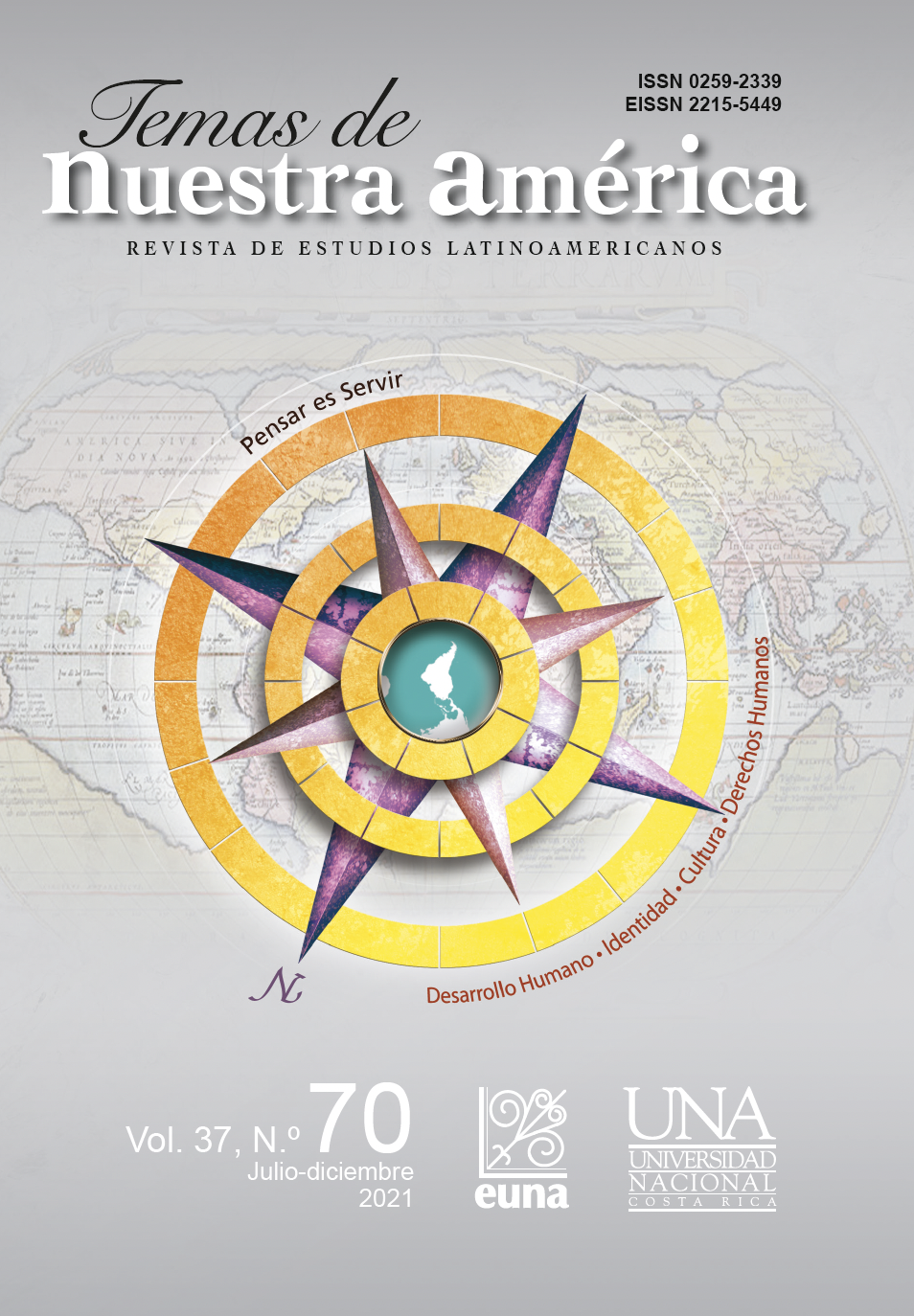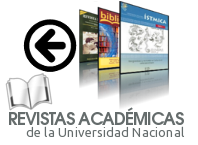Hispanic-American Independence in Martí's thought
DOI:
https://doi.org/10.15359/tdna.37-70.3Keywords:
Hispanic american independence, Homeland and freedom, José Martí, Natural man, Our America, second independenceAbstract
José Martí's interpretation of the Hispanic American independence processes is analyzed in this article. The first part mentions Martí's criticism of colonial elements that survive in the new republics; the autonomous character of the independence process, and the proposal of a second independence. Following the analysis, the concept of natural man is used to understand the role of the popular indigenous and mestizo social sectors as revolutionary subjects in the framework of Guatemala's independence struggle against Spanish colonialism in the work Patria y Libertad [Homeland and Freedom]. Likewise, a critique of the liberal context of the play Patria y Libertad is analyzed and two considerations on theater that incorporate the value of territoriality in theatricality are presented. Finally, it is concluded that the play Patria y Libertad expresses the role of interculturality and the leading role of popular social sectors in the development of the second independence.
References
Acosta, L. (1984). El Barroco de Indias y otros ensayos. La Habana: Casa de las Américas.
________. (1974). José Martí, la América precolombina y la conquista española. La Habana: Casa de las Américas.
Blanco, J. (2010). Colonialidad del saber y literatura: Invención y anulación del indígena en Patria y Libertad de José Martí. Revista A Parte Rei, número 72. Versión digital descargada el 30/10/2013 de http://biblioteca.universia.net/html_bura/ficha/params/title/colonialidad-saberliteratura-invencion-anulacion-indigena-patria-libertad-drama-indio/id/53622424.html
Dubatti, J. (2011). Introducción a los estudios teatrales. D. F. México: Libros de Godot.
Martí, J. (2002a). Obras Completas. Tomo VII, Carta a Valero Pujol, Director de El Progreso. La Habana: CEM.
________. (2002b). Obras completas. Tomo VI. Congreso internacional de Washington. La Habana: CEM.
________. (2002c). Obras completas. Tomo VIII. Discurso pronunciado en la velada de la Sociedad Literaria Hispanoamericana en honor de Simón Bolívar el 28 de octubre de 1893. Patria, Nueva York 4 noviembre 1893. La Habana: CEM.
________. (2002d). Obras completas. Tomo XVIII, Nota sobre el Drama indio. La Habana: CEM.
________. (2002e). Obras completas. Tomo VI. Nuestra América. La Habana: CEM
________. (2002f). Obras completas. Tomo XVIII, Patria o libertad. (Drama indio). La Habana: CEM
Rodríguez, P. P. (2012). El poema de 1810, José Martí ante las Independencias Hispanoamericanas. Temas de Nuestra América. Heredia, C. R.: EUNA
Sebazco, A. (2003). El proyecto de modernidad martiano. Repertorio Americano. Nueva Época. N.° 15-16, enero-diciembre 2003, pp. 366-371.
Published
How to Cite
Issue
Section
License
Esta obra de Revista Temas de Nuestra América está bajo una Licencia Creative Commons Atribución-NoComercial-SinDerivar 4.0 Internacional.
Cualquier permiso que trascienda dicha licencia, debe solicitarse por escrito a la persona directora de la Revista










